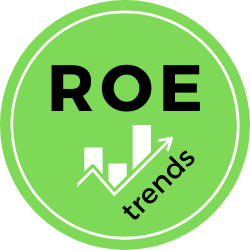Costco Stock Analysis A Retail Giant in the Membership Era

This Costco stock analysis evaluates Costco Wholesale Corporation (COST), a global leader in membership-only warehouse clubs. Known for bulk buying, discounted prices, and loyal customers, Costco operates in a competitive landscape where customer loyalty and efficiency are key. This analysis will explore Costco financial performance, strategies, and competitive advantages, giving investors insights into its current standing and future.
Company Overview
- History: Founded in 1976, Costco has grown from a single warehouse to a global giant with a strong presence in North America, Europe, and Asia. Its membership model and focus on value have fueled its consistent growth.
- Shareholders: Publicly traded on the Nasdaq, Costco has a diverse shareholder base, including institutional and individual investors.
- Mission: To provide members with quality goods and services at the lowest possible prices.
- Vision: To be the most trusted retailer, known for exceptional value, quality products, and customer satisfaction.
Costco Financial Performance: Consistent Growth
This Costco stock analysis requires evaluating its financial performance. The retail industry is influenced by consumer spending and competition. This analysis will examine key metrics like revenue, membership fees, and operating income to assess Costco financial health.
Revenue and Membership Fees:
This Costco stock analysis delves into Costco financial performance, focusing on revenue and membership fees. We’ll analyze factors driving these metrics, including membership growth, renewal rates, and sales.
| Year | Revenue ($B) | Membership Fees ($B) | Operating Income ($B) | Net Income ($B) | Operating Margin (%) |
| 2014 | 112.64 | 2.44 | 3.13 | 2.06 | 2.8 |
| 2015 | 116.19 | 2.64 | 3.38 | 2.38 | 2.9 |
| 2016 | 118.72 | 2.85 | 3.61 | 2.35 | 3.0 |
| 2017 | 126.17 | 3.14 | 3.88 | 2.68 | 3.1 |
| 2018 | 138.43 | 3.35 | 4.13 | 3.13 | 3.0 |
| 2019 | 152.70 | 3.55 | 4.63 | 3.66 | 3.0 |
| 2020 | 166.76 | 3.80 | 5.38 | 4.00 | 3.2 |
| 2021 | 192.05 | 4.00 | 6.73 | 5.01 | 3.5 |
| 2022 | 226.95 | 4.22 | 7.89 | 5.84 | 3.5 |
| 2023 | 243.00 | 4.30 | 8.40 | 6.20 | 3.5 |
| 2024 (TTM) | 254.45 | 4.50 | 8.90 | 6.70 | 3.5 |
(Source: Costco Wholesale Corporation financial reports, company filings)
Year-over-Year Analysis:
This Costco stock analysis demonstrates consistent growth in Costco financial results.
- Steady Growth: Revenue consistently increases due to new stores, membership growth, and comparable sales.
- Membership Fees: Consistent growth in membership fees reflects high renewal rates and customer loyalty.
- External Factors: We’ll discuss any impacts of economic conditions on Costco financial performance.
Operating Income and Net Income:
We’ll examine trends in operating and net income, considering cost management and efficiency.
Operating Margin:
We’ll analyze Costco’s operating margin, noting its stability and efficiency.
Key Factors:
This Costco stock analysis identifies factors influencing Costco financial performance:
- Membership Model: Drives customer loyalty and recurring revenue.
- Cost Management: Leveraging buying power and efficient operations for low prices.
- Product Selection: Balancing popular brands with Costco’s private label.
- Customer Experience: In-store experience, including customer service and the “treasure hunt” atmosphere.
- E-commerce Growth: Expanding e-commerce and integrating online and offline channels.
Strategic Focus: Maintaining Leadership
This Costco stock analysis highlights Costco’s strategies for maintaining leadership and adapting to the changing retail landscape.
- Membership: Attracting new members and keeping high renewal rates.
- Expansion: New store openings in domestic and international markets.
- In-Store Experience: Improving store layout, product demonstrations, and customer service.
- E-commerce: Investing in its online platform, delivery options, and omnichannel integration.
- Private Label: Growing Costco’s private label brands.
- Supply Chain: Focusing on efficient supply chain management.
SWOT Analysis:
This Costco stock analysis includes a SWOT analysis:
Strengths:
- Strong brand and loyal customers.
- Efficient operations and cost management.
- Successful membership model.
- Wide selection of quality products at competitive prices.
Weaknesses:
- Limited product selection.
- Dependence on membership fees.
- Vulnerability to economic downturns.
Opportunities:
- E-commerce and omnichannel integration.
- Growth in international markets.
- Developing private label brands.
- Using data analytics to personalize the customer experience.
Threats:
- Competition from other warehouse clubs and online retailers.
- Changing consumer preferences.
- Rising costs.
Competitive Landscape
Costco faces competition from:
- Warehouse Clubs: Sam’s Club, BJ’s Wholesale Club.
- Traditional Retailers: Walmart, Target, Amazon.
- E-commerce: Amazon, Alibaba.
Costco differentiates through its membership model, low prices, and curated product selection.
Key Projects and Future Outlook
This Costco stock analysis identifies key projects:
- Membership Growth: Attracting new members and increasing renewals.
- Global Expansion: Opening new warehouses.
- E-commerce Enhancement: Improving online shopping and omnichannel integration.
- Private Label Development: Expanding private label offerings.
- Supply Chain Optimization: Enhancing efficiency.
Mitigating the Risks
Costco manages risks through:
- Loyal Customers: Maintaining high customer satisfaction.
- Cost Control: Managing costs effectively.
- Diversification: Expanding product offerings.
- Adaptability: Responding to changing preferences and trends.
Costco Financial Analysis and Valuation:
This Costco stock analysis emphasizes Costco financial analysis:
- Revenue Growth: Analyzing trends.
- Profitability: Evaluating profitability and margins.
- Cash Flow: Assessing cash flow.
- Valuation Metrics: Utilizing ratios like P/E, P/S, and dividend yield.
Investor Sentiment and Market Outlook:
This Costco stock analysis encourages investors to consider:
- Analyst Ratings: Opinions and price targets.
- Market Trends: Investor sentiment and economic conditions.
- News and Media Coverage: Events impacting performance.
Environmental, Social, and Governance (ESG) Factors:
This Costco stock analysis highlights evaluating:
- Environmental Sustainability: Efforts to reduce environmental impact.
- Social Impact: Employee relations and ethical sourcing.
- Corporate Governance: Board diversity and transparency.
Investment Considerations:
This Costco stock analysis suggests investors consider:
- Retail Industry Outlook: Growth trends and consumer behavior.
- Competitive Landscape: Costco’s competitive advantages.
- Strategic Initiatives: Potential to drive growth.
- ESG Performance: Commitment to responsibility.
- Costco Financial Performance: Revenue growth and profitability.
- Valuation: Relative to peers.
- Risk Tolerance: Alignment with investment goals.
Conclusion:
Costco has a strong track record of growth and customer loyalty. It is well-positioned for continued success, but investors should consider the competitive landscape and economic conditions. By staying informed about Costco’s strategies and Costco financial performance, investors can make informed decisions. We recommend that you check the data in this article on the Costco investor relations web page.





